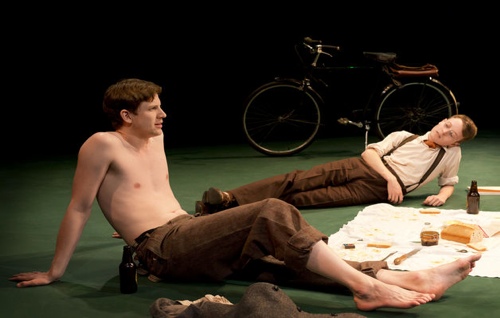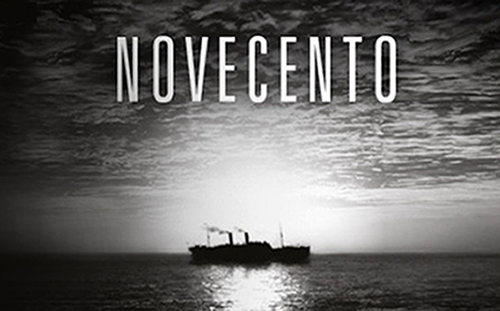
Only with strangers can we truly be ourselves; this is essentially the unifying premise of Robert Holman’s quiet, war-stained trio of short plays, given a fittingly muted production by Peter Gill. Set during and around the Second World War and the later Falklands War, the dark shadow of conflict and destruction extends its reach across each of the tenderly drawn characters that the playwright carefully holds out for us to examine, but the resounding note that emerges is one of hope.
Honesty and human connection spring up unexpectedly. In Being Friends, the opening piece of the evening, two young men open their hearts over a subdued country picnic as bombs buzz threateningly in the distance, while in Lost a mother shares surprising details about her relationship with her dead son with the soldier who delivers news of his demise. Holman recognises the quiet power of undressing, both physically and emotionally, peeling off layers to reveal characters who are raw and truthfully fragile. It is a process that occurs visibly in the outstanding performances of the cast, as carefully constructed outer veneers crack and splinter.
Ben Batt rages with an anger that seems to writhe beneath his skin as the troubled soldier
While all three pieces are elegantly captivating and gently insinuate themselves into the mind, it is the final play, from which the triptych takes its name, which is the most delicately bruising. In the rural isolation of Germany’s Black Forest, Holman brings together three broken individuals in a piece which crystallizes the pain, contradictions and gorgeous, wild complexity of the human condition, as a damaged Falklands veteran and his mute son find an odd sort of refuge with Holocaust survivor Helene.
Here the traces of violence are most visibly present and the wounds are closest to the surface, yet the lasting impression is perhaps the most uplifting. Ben Batt rages with an anger that seems to writhe beneath his skin as the troubled soldier who lets out his frustration on the young boy in his care, but through his occasionally turbulent relationship with the contrastingly calm and quietly authoritative Sara Kestelman, all three characters begin to reach a state of peace.
Plot and physical movement are both thin on the ground in an evening that favours stillness and simplicity, but neither of these qualities is to the production’s detriment. At a time when it is all too easy to fall into the lazy assumption that theatre must boldly demand our attention in order for it to be worth us offering it, the Donmar proves that drama does not need to be loud or showy to be heart-wrenchingly beautiful.
**** (4 stars)
Runs until 26th May
More info



Be the first to comment